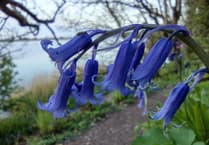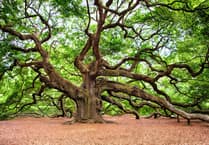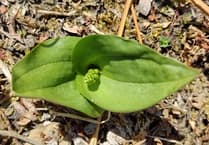As society has become more urban, more indoors- and more screen-based, nature education in our schools is needed more than ever to help young people learn about wild plants and animals. At a time when we are losing our wildlife, giving young people an understanding of how ecosystems work and living species interact will support them to conserve and restore species.
The nature writer, Mary Colwell, first proposed a new GCSE in Natural History for students aged 14 to 16 in 2019, and her UK Parliamentary petition gathered over 10,000 signatures from schools, wildlife groups and individuals. Since then, the Natural History Museum, The Wildlife Trusts and Field Studies Council have been working with the OCR exam board to develop the new qualification.
The new GCSE would teach skills for careers in conservation, farming, the environment and wildlife sectors. It was approved by the previous government in 2022, to be taught from September 2025.
The new qualification has the full support of universities who have expressed concern that young people entering university are lacking the skills needed to name, observe, record, interpret and understand data collected on wildlife in the UK.
As the final step in introducing the new GCSE, the Department of Education was due to open a public consultation this year. However, despite widespread public support and being popular with young people themselves, the Department of Education has reported that the GCSE is now on hold while it is reassessed as part of a wider curriculum review by the current government.
There is strong evidence that spending time in natural environments positively supports our health and wellbeing, and helping children and teenagers to reconnect with nature could support their mental health. The Forest School movement that takes younger children out of the classroom into a natural environment is built on the fact that children learn better after having spent time outdoors in nature.
The Natural History GCSE will involve active outdoor study, including of students’ local wildlife and ecosystems, whether they live and study in urban or rural environments. For urban students, taking a GCSE in Natural History will give them access to nature that is not otherwise available to them. Children from disadvantaged backgrounds would especially benefit.
A study in August 2019 found that 51% of UK children were unable to identify a stinging nettle. The research involved 1,000 children aged 5 to 16 being shown various natural objects and asked what they were. 82% failed to recognise an oak leaf, 83% could not identify a bumblebee, 40% could not name a dandelion and 23% failed to identify a robin.
Delaying the GCSE does a massive disservice to young people, so it is to be hoped that the government quickly reinstates the Natural History GCSE and that all MPs give it their full backing to ensure that it is taught from September 2026.
If we are to conserve and restore nature, it is vital that we reconnect future generations with the living world around them.





Comments
This article has no comments yet. Be the first to leave a comment.